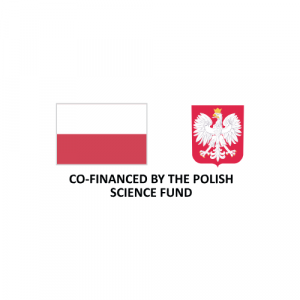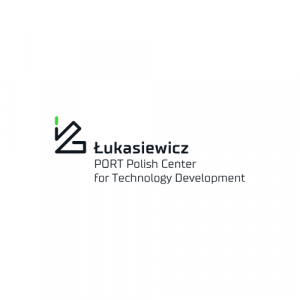Project
Personalized endothelial diagnostics in anticancer treatment; towards modern vasculooncology
Abstract
The goal of the ADEVASCO team’s scientific and research activities is to develop a new technology of the electrochemical aptasensor, based on aptamers and original methodological solutions based on polymer nanobrushes, mounted into a specially designed POCT apparatus with microfluidic system. This completely novel technology will provide a tool to solve the unmet medical need of an early companion diagnostics (CDx) for cardiovascular toxicities related to anticancer therapy.
Description
Changes in the vascular endothelium precede pathological changes in the cardiovascular system, and the diagnostics of the vascular endothelium can early detect the cardiovascular risks of oncological therapies. However, there are no diagnostic tests that could detect endothelial dysfunction induced by oncological treatment. Therefore, the main goal of the project is to develop a new technology of the electrochemical aptasensor, based on aptamers and original methodological solutions based on polymer nanobrushes, mounted into a specially-designed POCT apparatus with microfluidic system. This completely novel technology will provide a tool to solve the unmet medical need of an early companion diagnostics (CDx) for cardiovascular toxicities related to anticancer therapy (CVR-CVT) to be used on a large scale for the early detection of endothelial dysfunction caused by anticancer treatment and for the assessment of the individualized risk of cardiovascular complications in oncological treatment and on this basis, for personalized oncological treatment. To achieve the main goal of the project, it is necessary to acquire new knowledge. Thus, comprehensively planned preclinical studies on the effects of anticancer drugs on the vascular endothelium and the cardiovascular system are planned in various models, aimed to identify the panel of biomarkers that best indicates the adverse effects of anticancer drugs on endothelial function but not of cancer disease progression itself on endothelium. These studies will be based on comprehensive analytical approaches for biomarkers identification, taking also advantage of the advances in the novel field of pharmacometabolomics and well-designed endothelial profiling methods in vivo in various models. The endothelial function will be indeed assessed using unique and recently elaborated by the project team approach for functional endothelial assessment in vivo. Given the lack of sufficient knowledge, it is necessary to develop a specific encyclopedia of the effects of oncological treatment on the vascular endothelium in healthy condition and in cancer and to systematize the fragmentary knowledge on this subject along with deepening the mechanistic insight into the mechanisms of adverse effects of oncological drugs on the vascular endothelium. The preliminary results presented in the project, show the feasibility of the project and confirm the validity of approach adopted in the preclinical studies. WIB-APL-PZ-03/01.01/1_EN from 10.07.2023 r. Page 9 of 189 Importantly, clinical study is also planned to validate findings from preclinical studies, to validate the clinical utility of identified biomarkers in a real clinical scenario and to confirm their relation to anti-cancer drug-induced endothelial dysfunction assessed in patients. Finally, we will validate the application of novel technology of the project for the early detection of anti-cancer drug-induced endothelial dysfunction assessed in oncological patients. The unique preclinical and clinical knowledge acquired in this project, will allow to identify and to validate in the clinical scenario, both the unique and common biochemical signatures of the adverse effects of anticancer therapy on the vascular endothelium, and thus will allow to propose a multi-biomarker strategy for early personalized diagnostics of vascular endothelium in cancer patients with various types of cancer. We will develop a unique technology of aptasensor with a completely new application in the context of companion endothelial diagnostics, that will be based on new small molecules biomarkers. Novel technology will use novel optimized aptamers and a new electrochemical detection platform based on polymer brushes mounted into a microfluidic system (cassette), that will be developed and manufactured. Together with a cassette, a special reader with a flow management system will be constructed, which will enable in the future automatic preparation of samples from patients and their automated analysis based on point-of-care technology (POCT). Novel technology developed in the frame of this project for the companion diagnostics of endothelial dysfunction, will not only pave the way for vasculooncology, but also will open a completely novel avenue for companion diagnostics of multiple other diseases associated with endothelial dysfunction. Thus, the realization of this project may position the WIB team from Poland in a real forefront of Endothelial Biomedicine on the global scale.
Funding
Project funded by the Polish Science Fund.



Contractor
Jagellonian University (Leader),
Hirszfeld Institute of Immunology and Experimental Therapy Polish Academy of Sciences in Wrocław, Institute of Animal Reproduction and Food Research Polish Academy of Sciences in Olsztyn,
Medical University of Gdańsk,
Maria Sklodowska-Curie National Research Institute of Oncology in Gliwice,
Warsaw University of Technology
Project No
UoF/03-WIB-3/2023-003
Project value
78 578 024,95 PLN
WUT: 8 122 020,00 PLN
Contract signing date:
27.09.2024





